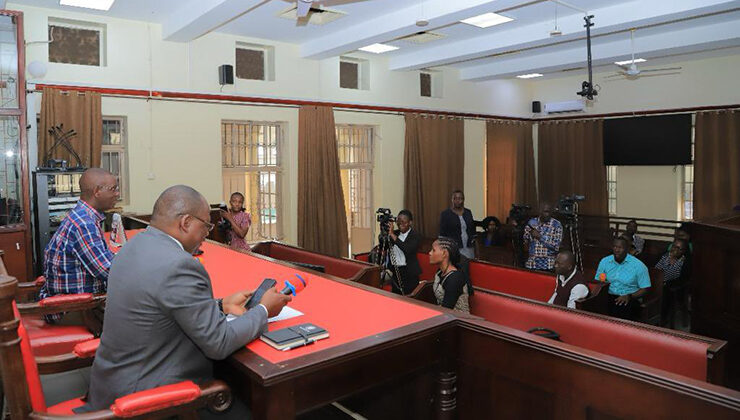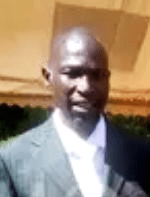
The Permanent Secretary/Secretary to the Judiciary, Dr Pius Bigirimana, addressed a press briefing at the Judiciary Headquarters, on 20th December, 2023. PHOTO: FILE/COURTESY.
A court in Uganda will on 10th January, 2024 hear a motion aimed at dismissing a lawsuit filed by the muslim community in Soroti district against two evangelists.
Evangelist Joseph Omadi and Isaac Napakol were on 23rd November, 2023 arrest by security operatives and charged under Section 122 of Uganda’s penal code for allegedly “wounding the religious feelings” of the Muslim community when they quoted from the Koran during a three-day evangelistic campaign in the city of Soroti.
The evangelists had preached on the street for 30 minutes on 21st November, 2023 when they were suddenly attacked by a “multitude of Muslims”, according to a participating pastor who managed to escape.
“We thought that maybe they had come to listen to the word of God, but to our surprise, they just grabbed my colleagues and started beating them, and shortly police came and arrested them,” Pastor Robert Omodingi told persecution watchdog Morning Star News.
Sources said that one of the detained evangelists, Omadi was seen limping during the first court hearing at a grade one magistrate court, on 20th December, 2023 in Soroti city.
It was unclear whether the injury to his left leg was a result of the mob beating on 21st November, or whether it was inflicted in custody.
“We as Muslims have worked hand in hand to get these kafir [infidels] after warning them to stop using our Koran and other Islamic literature, but they refused. They were quoting the Koran while speaking to our Muslims on the streets of Soroti – this is unacceptable in our faith,” District leader Sheikh Ramadhan Ibwakit was quoted as saying.
This report has since prompted church leaders in Soroti to mobilize Christians to pray and fast for the two evangelists. One of the leaders criticized Sheikh Ramadhan for leading police to arrest the evangelists for using the Koran in their preaching.
“We have been seeing Muslims in their open-air crusades using our Bibles,” he was quoted as saying. “Even the Muslims do use the Bible, but the church has never accused them in any court of law in Uganda.”
Section 122, Uganda’s blasphemy law against writing or uttering words with intent to wound religious feelings, has been criticized as constitutionally invalid for contravening freedom of speech and for vagueness that violates the key tenet of legality.
“The determination of whether a crime has been committed under the provision depends on the subjective feelings of the audience to whom any word, sound or gesture may or may not be directed,” attorney Nimrod Muhumuza wrote in a 2019 issue of AfricLaw journal. “In other words, a prospective suspect’s fate depends on the feelings and sensibilities of another individual.”
Vague laws such as Section 122 may trap the innocent by failing to provide fair warning, Muhumuza stated.
“A vague law impermissibly delegates basic policy matters to policemen, judges, juries for resolution on an ad-hoc basis with the attendant danger of arbitrary and discriminatory application,” he wrote. “However, even if the prescription of what constitutes an offense under the provision was precise and clear enough, would it survive interdiction by the right to freedom of expression provided for in the Constitution?”
Additional reporting by Morning Star News.


